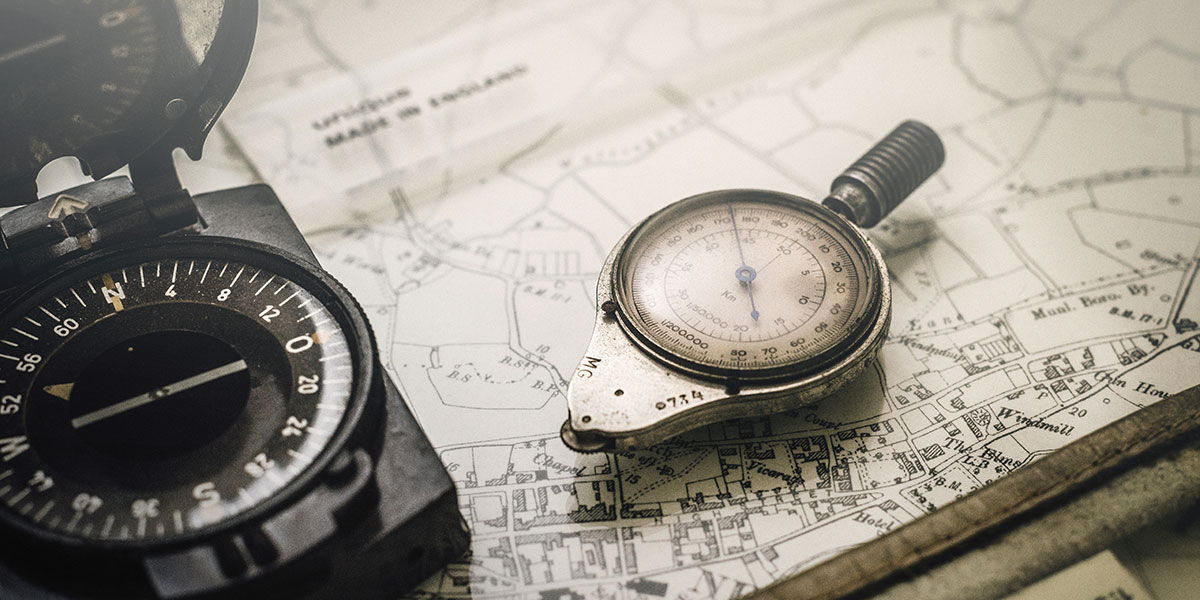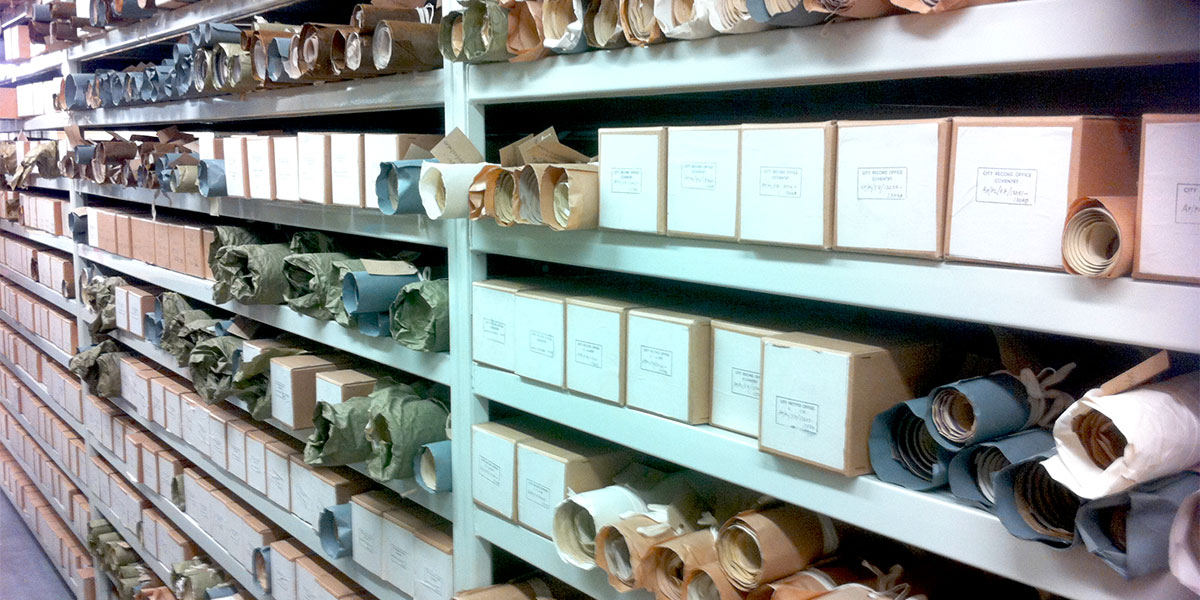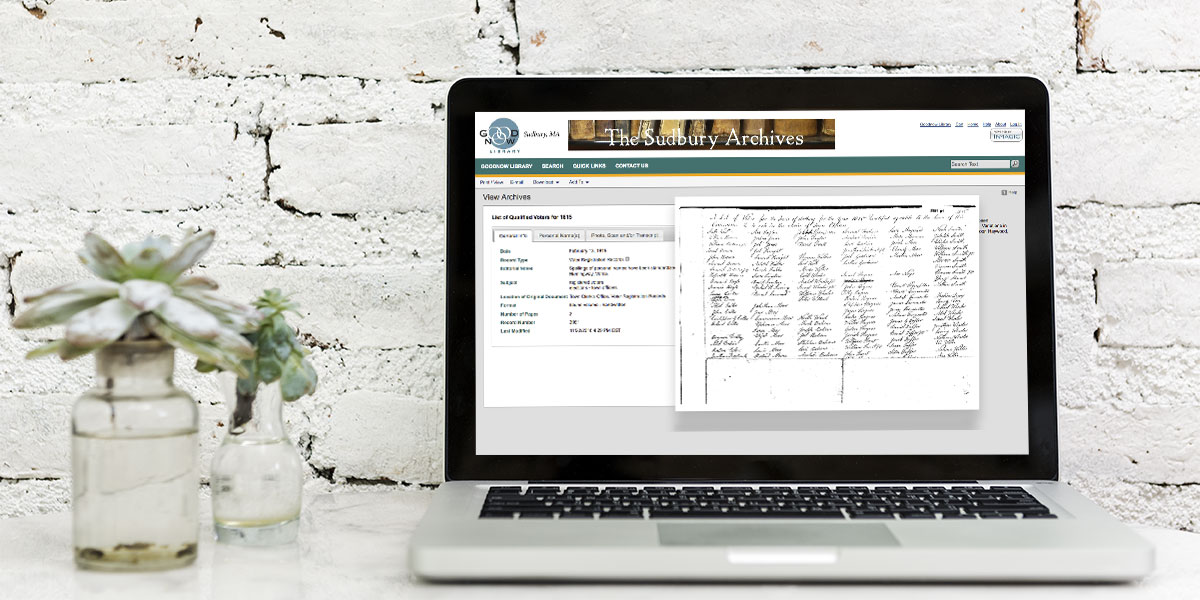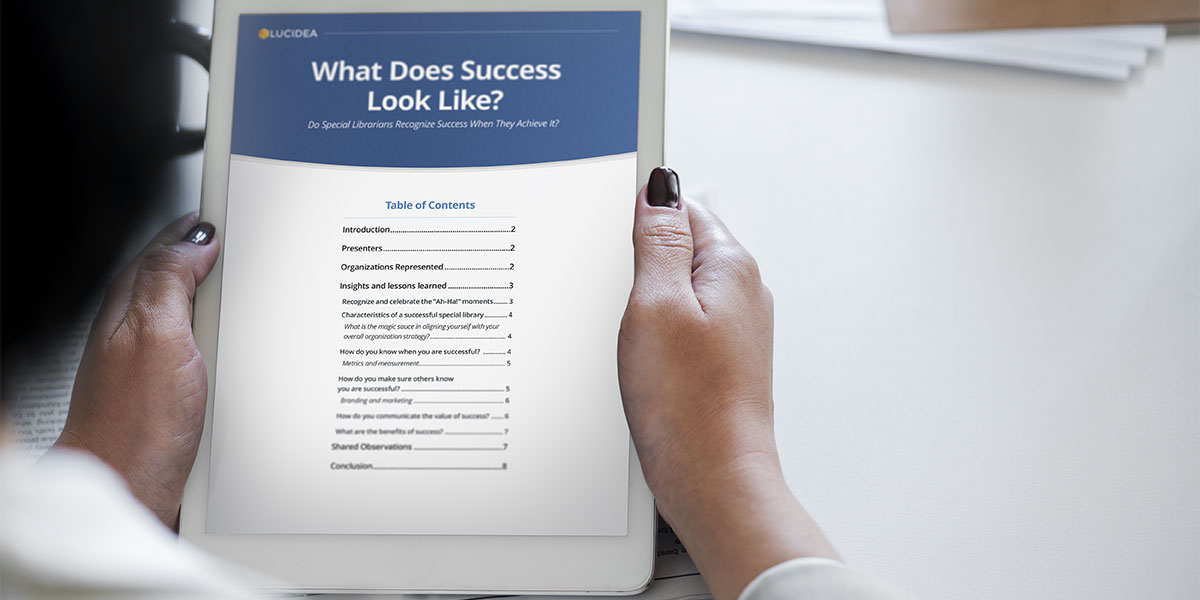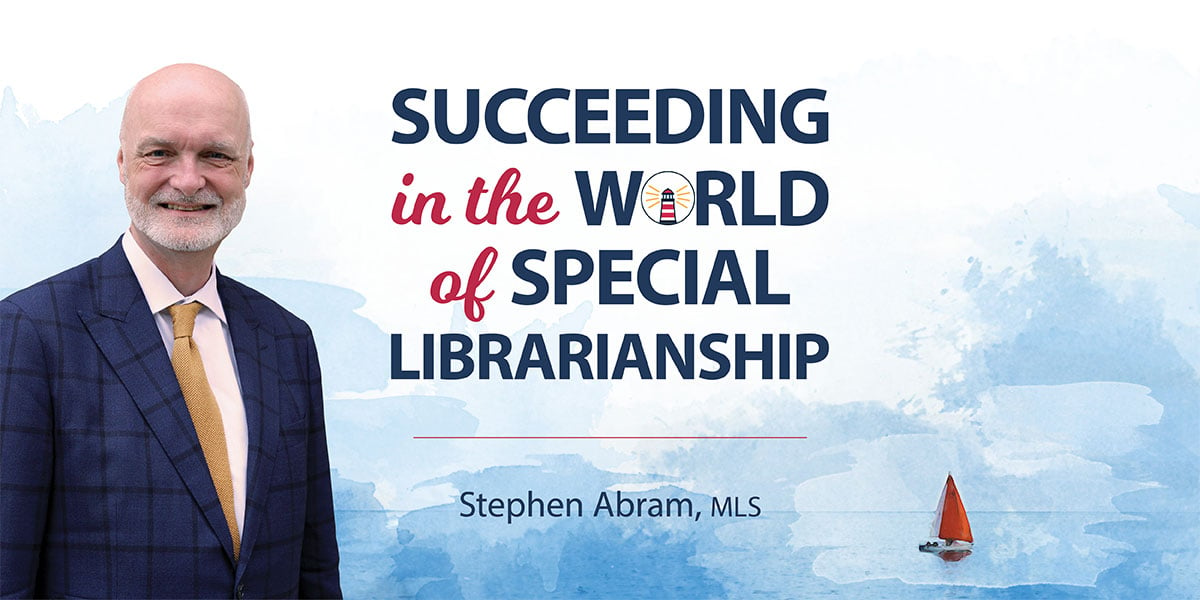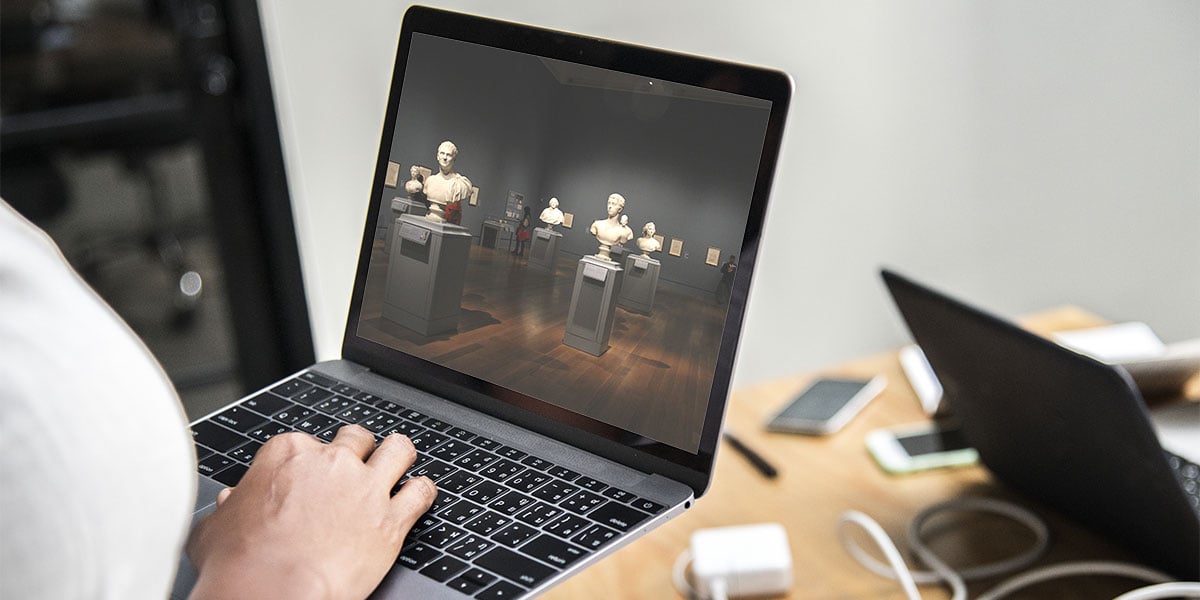Embedded librarians can be dedicated staff members, or available upon request on an ‘as needed’ basis. Which strategy works best for your organization, project, and budget?
We've Moved!
Think Clearly has a new home! Click here to see our latest posts.
*If there’s older content you’d like to catch up on, you can browse right where you are, until Friday, April 5th.
We know it takes a minute to get used to change!
Dedicated or part time embedded librarians: What works best for your organization?
Digitization can be performed either in-house or outsourced. In-house implies that a department of the institution captures the images—supplying hardware and software, trained personnel, and overhead. Outsourcing requires entering into a contract with a vendor who will receive the images, convert them, and return the originals with the required digital files. Both in-house and outsourced alternatives should be considered when embarking on a digitization project.
Topics: Digital Archives, Archives, Collections Management
Education is required when introducing a new KM initiative, during roll out across your organization, and as a key part of ongoing implementation. You must continue to offer training in a variety of ways; once is never sufficient. Please read on to learn the elements of a knowledge management training program, drawn from my new book, Proven Practices for Promoting Knowledge Management.
Topics: Knowledge Management, Training, KM, Customer Engagement
At any given time, museum visitors only see 10% of a museum collection. When I was working at the Smithsonian, I believe the statistic was even lower—a whopping 1% of collection materials were on display! Now consider the possibility of a related but differently categorized collection – that of the museum’s archives. Archival materials rarely make it onto the museum’s exhibition floor and yet they are critically important to correctly interpreting the museum’s objects.
Topics: Museums, Archives, Collections Management
When planning an integrated library system (ILS) implementation, you should remember that software applications are not like houses: it costs a lot more to build an application from scratch than to buy a new one. But why is that?
Topics: Integrated Library Systems, ILS, Special Librarians, Open source
As archivists, we take our responsibilities seriously as stewards of the collections entrusted to our care, ensuring that our assets remain safe and accessible to users. The demand for increased online access to collections, coupled with limited fiscal and staff resources, makes balancing the two a challenge.
Topics: Digital Archives, Archives, Collections Management
The Local History and Genealogy Room, known as The Sudbury Archives, is located within the Goodnow Library in Sudbury, Massachusetts. Sudbury was one of the very first inland towns in Massachusetts, and there are many families who can trace themselves, through town records, back to the early 1600s. The library’s historical collections are available to the general public for research involving local, genealogical and/or historical issues.
Topics: Knowledge Management, Special Libraries, KM
Museums are filled with experts in collections care, display, and education, but they aren’t always filled with experts in project management. Defining and measuring project success is not a practice I see conducted consistently in museums.
What Does Success Look Like for the Special Library? SLA 2017 Hot Topics Panel (Revisited)
Special librarians know that to ensure sustainability they must build a strategy, embrace change, and even create it. They know that the path to success includes doing more with the tools they have, and the skills they’ve built. But do special librarians truly recognize success when they achieve it? Equally important, do they focus on communicating the value of their success to leadership and peers?
Topics: Professional Development, Marketing, Special Librarians
Staffing needs for digital projects depend on the project’s size and complexity. Training existing staff members to work on digitization projects is a critical component of change management within the institution because digital projects require new skills. The digital age is moving memory institutions into new paradigms of delivering both services and content, and this alteration brings with it a need for training in managing information in a hybrid environment.
Topics: Digital Archives, Archives, Collections Management
During a “KM Conversation” with knowledge management evangelist and expert Stan Garfield, he focused on using gamification techniques—including awarding points and point scoring—to help build user engagement and ensure your KM platform is vibrant and widely leveraged within your organization.
Topics: Knowledge Management, KM, User Engagement
Staffing shortages are a common issue for museums. As in many nonprofit sectors, museums manage staffing shortfalls with volunteers. Volunteers can be a huge benefit to a museum because they often come with expertise and skills acquired from a lifetime of experiences.
Ready to Read: Succeeding in the World of Special Librarianship
I’m pleased to announce that my new book, Succeeding in the World of Special Librarianship, is now available from Lucidea Press. You may be aware that I am a regular contributor to Lucidea’s “Think Clearly” blog, so when they asked me to write their imprint’s next book, it felt like a great opportunity to share my perspectives in a more expansive form.
Topics: Professional Development, Strategy, Special Librarianship
Part 2: Benefits and Value of Embedded Special Librarianship
Embedded information professionals share their expertise across the enterprise—which benefits from increased awareness of internal resources and projects. Embedded special librarians add value by bridging information silos while disseminating information throughout the organization.
During our “KM Conversation” with knowledge management evangelist and expert Stan Garfield, “Gamification Accelerates KM Adoption,” he focused on how you can use gamification techniques to crack the challenging problem of building user engagement and ensuring that your KM platform is vibrant and widely leveraged within your organization.
Topics: Knowledge Management, KM, User Engagement
Effective Technology Training for Museum Volunteers & Interns
Museums are now expected to have an online presence. At first, this meant museums needed a website with information about their hours of operation. Later, it meant museums should publish content and information about current and permanent exhibits. Now, the expectation is that museums have a digital presence for all artifacts.
The American College of Surgeons (ACS) is a scientific and educational association of surgeons that was founded in 1913 to improve the quality of care for the surgical patient by setting high standards for surgical education and practice. The College Archives, located in the headquarters building in Chicago, collects and preserves inactive College records of enduring value and makes them available for research to its members and to the general public.
Topics: Archives Collections Management Software, Digital Archives, Archives
In my current book on promoting knowledge management initiatives within the corporate world, I offer a collection of practical tips and techniques that can help your KM program thrive. High performing communities are essential to KM success. I have developed 10 principles for KM practitioners to keep in mind as they build and participate in communities.
Topics: Knowledge Management, Strategy, Knowledge Management Software




